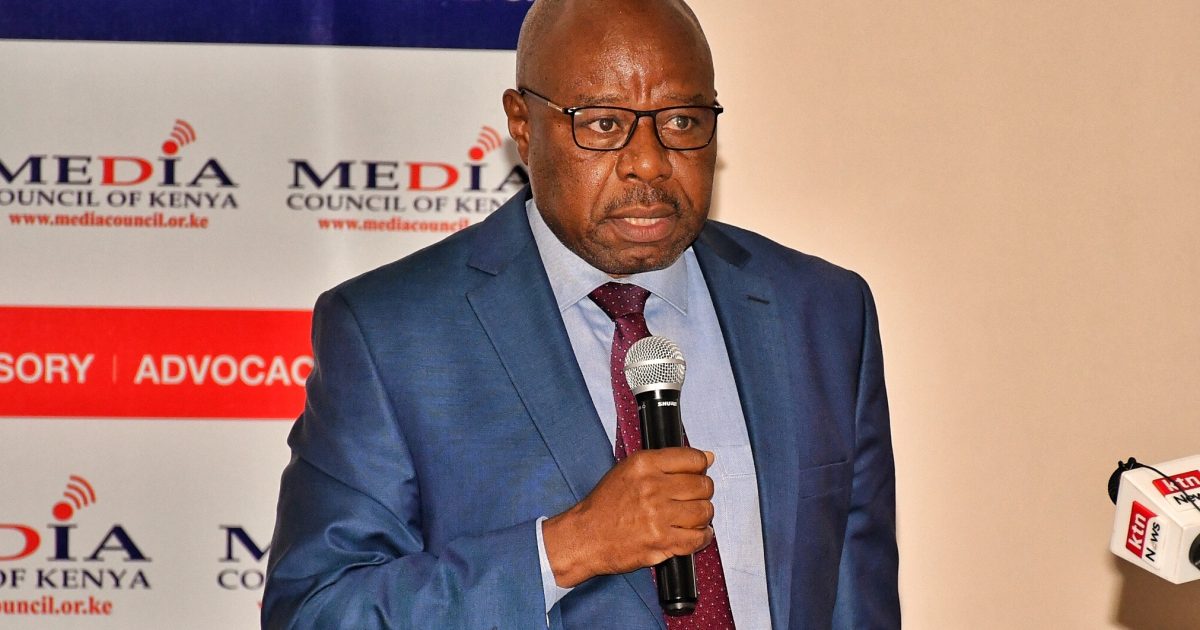State Department for Broadcasting and Telecommunications (BT) is restructuring functions within technical departments to enable effective service delivery.
Principal Secretary Prof Edward Kisiang’ani says the restructuring is meant to align the functions of the Ministry with the Kenya Kwanza government’s Bottom-up Economic Transformation Agenda (BETA).
He noted that the agenda embraces, Housing, Manufacturing, Agriculture, MSMEs Digital Economy and Universal Health.
“In this regard, we are planning to create two more directorates, namely Telecommunications and Postal and Courier Services respectively. The other sister directorates will be Information and Broadcasting, and Government Advertising Agency (GAA),” Kisiang’ani said.
He was speaking in Naivasha on Wednesday during a three-day seminar for retooling of public communication officers.
Prof Kisiang’ani said communication officers are key components in delivering government agenda to Kenyans and tasked the officers to be in the forefront in simplifying government programmess, initiatives and development agendas to the citizens and their impacts.
He advised them to strengthen messaging on how the six key agenda will transform the lives if citizens, improve their way of life and deliver on developments for the country.
The PS said its time Public Communication is rightfully recognised as a strategic management function in government.
Prof Kisiang’ani said there are proposals that the current units in various State Departments be upgraded to Divisions, headed by a Director of Public Communications (DPC).
“We envisage a situation where Public Communication is embedded in all planning processes of government projects, programmes and initiatives, wherein, Public Communication Officers (PCOs) and initiatives ‘sit at the table’ in decision-making, and not be ‘part of the menu’,” Prof. Kisiang’ani stated.
The PS observed that his department will continue to support initiatives and partnerships such as the ongoing workshop, to re-tool, re-skill and equip the PCOs to enable them remain relevant in this era of new media.
“Our main focus is on enhancing our skills where we embrace learning as a continuous process in both career and personal developmental growth,” Prof Kisiang’ani said and further assured the PCOs of his support for any policy and directive that will facilitate their work and pledged to work with other stakeholders to resolve all challenges facing them.
The PS at the same time said the government has no intention of interfering with the Media Council of Kenya (MCK) but cautioned the entity that it will not allow for control by media houses and conflict of interest by media entities.
Prof Kisiang’ani tasked the officers to defend the government agenda and actions noting that the Kenya Broadcasting Corporation (KBC), will soon launch a programme to champion government agenda and initiatives.
He also urged the communication officers to deploy effective strategies to communicate government programmes, counter information distortions, debunk on time misinformation and lies to ensure citizens understand in simple terms the effects of what the government does.
Kisiang`ani further advised the officers to undertake necessary research on the impact of government initiatives, programmes and agendas to support government officers from Cabinet Secretaries (CSs), Principal Secretaries ( PSs) and Directors to communicate effectively in discharging their mandates.·
He also advised them to acquaint themselves with the targets in their particular ministries and state departments to enable them communicate better in line with the Bottom-up Economic Transformation Agenda (BETA).
The PS said Government has no intention of gagging the media but will respect their constitutional space to practice and urged them to be neutral arbiters of truth.
“Media should also rethink and reorganize their business models to adapt to the changing environment to ensure they create jobs and revenue to stay afloat and serve Kenyans,” he said.
He reiterated that Government communication officers should be the image of the government in their ministries and should desist from furthering ethnic balkanisation of citizens that they render their services to.
By Mabel Keya Shikuku





